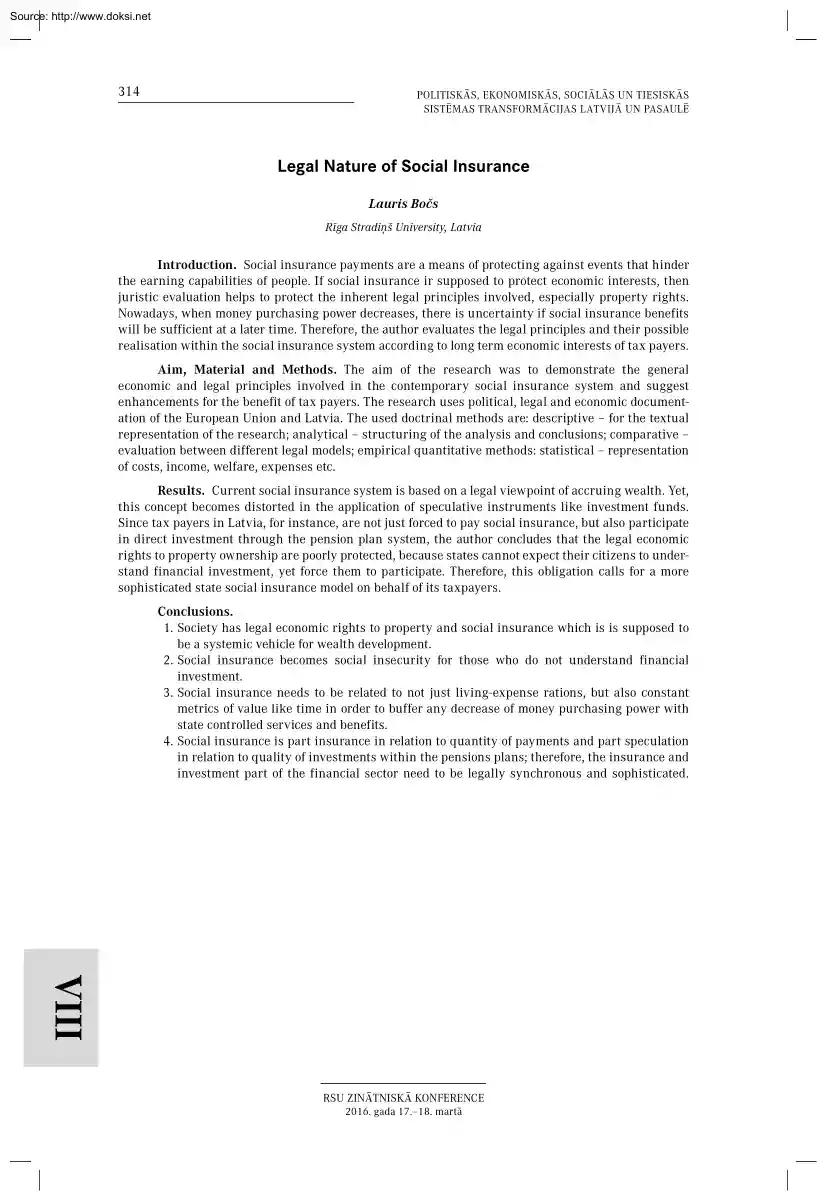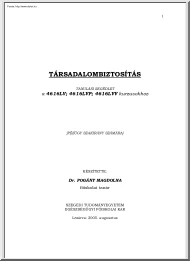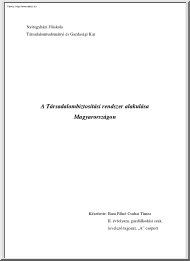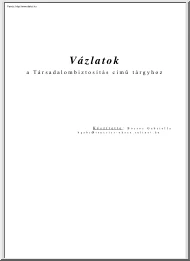Datasheet
Year, pagecount:2016, 1 page(s)
Language:English
Downloads:2
Uploaded:January 11, 2018
Size:509 KB
Institution:
-
Comments:
Riga Stradi?s University
Attachment:-
Download in PDF:Please log in!
Comments
No comments yet. You can be the first!Content extract
Source: http://www.doksinet 314 politiskās, ekonomiskās, sociālās un tiesiskās sistēmas transformācijas Latvijā un pasaulē Legal Nature of Social Insurance Lauris Bočs Rīga Stradiņš University, Latvia Introduction. Social insurance payments are a means of protecting against events that hinder the earning capabilities of people. If social insurance ir supposed to protect economic interests, then juristic evaluation helps to protect the inherent legal principles involved, especially property rights. Nowadays, when money purchasing power decreases, there is uncertainty if social insurance benefits will be sufficient at a later time. Therefore, the author evaluates the legal principles and their possible realisation within the social insurance system according to long term economic interests of tax payers. Aim, Material and Methods. The aim of the research was to demonstrate the general economic and legal principles involved in the contemporary social insurance
system and suggest enhancements for the benefit of tax payers. The research uses political, legal and economic documentation of the European Union and Latvia The used doctrinal methods are: descriptive – for the textual representation of the research; analytical – structuring of the analysis and conclusions; comparative – evaluation between different legal models; empirical quantitative methods: statistical – representation of costs, income, welfare, expenses etc. Results. Current social insurance system is based on a legal viewpoint of accruing wealth Yet, this concept becomes distorted in the application of speculative instruments like investment funds. Since tax payers in Latvia, for instance, are not just forced to pay social insurance, but also participate in direct investment through the pension plan system, the author concludes that the legal economic rights to property ownership are poorly protected, because states cannot expect their citizens to understand
financial investment, yet force them to participate. Therefore, this obligation calls for a more sophisticated state social insurance model on behalf of its taxpayers. Conclusions. 1. Society has legal economic rights to property and social insurance which is is supposed to be a systemic vehicle for wealth development. 2. Social insurance becomes social insecurity for those who do not understand financial investment. 3. Social insurance needs to be related to not just living-expense rations, but also constant metrics of value like time in order to buffer any decrease of money purchasing power with state controlled services and benefits. 4. Social insurance is part insurance in relation to quantity of payments and part speculation in relation to quality of investments within the pensions plans; therefore, the insurance and investment part of the financial sector need to be legally synchronous and sophisticated. VIII RSU ZINĀTNISKĀ KONFERENCE 2016. gada 17–18 martā
system and suggest enhancements for the benefit of tax payers. The research uses political, legal and economic documentation of the European Union and Latvia The used doctrinal methods are: descriptive – for the textual representation of the research; analytical – structuring of the analysis and conclusions; comparative – evaluation between different legal models; empirical quantitative methods: statistical – representation of costs, income, welfare, expenses etc. Results. Current social insurance system is based on a legal viewpoint of accruing wealth Yet, this concept becomes distorted in the application of speculative instruments like investment funds. Since tax payers in Latvia, for instance, are not just forced to pay social insurance, but also participate in direct investment through the pension plan system, the author concludes that the legal economic rights to property ownership are poorly protected, because states cannot expect their citizens to understand
financial investment, yet force them to participate. Therefore, this obligation calls for a more sophisticated state social insurance model on behalf of its taxpayers. Conclusions. 1. Society has legal economic rights to property and social insurance which is is supposed to be a systemic vehicle for wealth development. 2. Social insurance becomes social insecurity for those who do not understand financial investment. 3. Social insurance needs to be related to not just living-expense rations, but also constant metrics of value like time in order to buffer any decrease of money purchasing power with state controlled services and benefits. 4. Social insurance is part insurance in relation to quantity of payments and part speculation in relation to quality of investments within the pensions plans; therefore, the insurance and investment part of the financial sector need to be legally synchronous and sophisticated. VIII RSU ZINĀTNISKĀ KONFERENCE 2016. gada 17–18 martā





